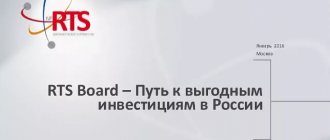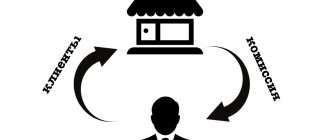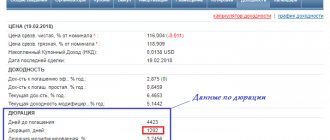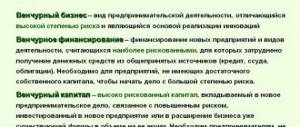Making money on financial market instruments involves many opportunities and a variety of strategies. But sometimes it requires professionalism in solving complex problems and experience in conducting trading operations, because... is a complex list of actions.
To expand your understanding of the securities trading market, to find out the difference between market mechanisms, you must first find out what futures and options are, what is the difference between them and how to influence market relations using these means.
What is meant by futures?
Futures are contracts (agreements) for the purchase and sale of a certain amount of a selected asset, which must take place strictly on a certain date in the future and occur at a price agreed upon at the time of their conclusion.
The two parties in such transactions are buyers and sellers. In this case, the buyer has an obligation to purchase a certain amount of the asset. In contrast, the seller becomes obligated to sell it accordingly on the agreed date. Thus, both parties to the futures transaction are limited by mutual obligations.
Each futures contract has predetermined information about the type of asset, size, timing of the agreement and price. The etymology or origin of the term itself has an obvious reference to the English language. Future in English means future.
It is important to understand an important feature of a futures agreement. Until the specified period has expired, the party to the contract has the right to cancel the obligations assumed. This can happen in two ways. Firstly, it can sell this future if it was previously purchased. Secondly, she can buy it in the case where it was originally sold.
Futures trading is a type of investment process in which there are real opportunities to speculate on the constantly changing dynamics of quotes or the value of the underlying asset.
The asset in a futures contract can be various types of commodities. For example, it could be:
- about wood;
- gold;
- oil;
- cotton;
- grain;
- become;
- currency;
- and much more.
Every day, traders from different countries enter into millions of thousands of purchase and sale transactions for all the goods listed above. Moreover, such trading in the vast majority of cases is purely speculative in nature. Simply put, every trader tries to buy a product at a low price and sell it at a higher price. The situation in which traders, purchasing futures, are going to receive or provide the asset specified in it is extremely rare.
Brokerage services are provided by PJSC Sberbank (Bank), general license of the Bank of Russia for banking operations No. 1481 dated August 11, 2015, license for the provision of brokerage services No. 045-02894-100000 dated November 27, 2000.
You can obtain detailed information about the Bank's brokerage services by calling 8-800-555-55-50, on the website or at the Bank's branches. This website also contains the current conditions for the provision of brokerage and other services. Changes in conditions are made by the Bank unilaterally.
The content of this document is provided for informational purposes only and does not constitute an advertisement of any financial instruments, products, services or an offer, obligation, recommendation, or inducement to engage in transactions on the financial market. Despite receiving information, you independently make all investment decisions and ensure that such decisions comply with your investment profile in general and in particular with your personal ideas about the expected profitability from operations with financial instruments, the period of time for which such profitability is determined, as well as the acceptable You are at risk of losses from such transactions. The Bank does not guarantee income from the operations with financial instruments specified in this section and is not responsible for the results of your investment decisions made on the basis of the information provided by the Bank. No financial instruments, products or services mentioned herein are offered or sold in any jurisdiction where such activity would be contrary to securities laws or other local laws and regulations or would subject the Bank to compliance with registration in such jurisdiction. In particular, we would like to inform you that a number of states (in particular, the United States and the European Union) have introduced a sanctions regime that prohibits residents of the relevant states from acquiring (assisting in the acquisition) of debt instruments issued by the Bank. The Bank invites you to ensure that you are eligible to invest in the financial instruments, products or services mentioned herein. Therefore, the Bank cannot be held liable in any way if you violate any prohibitions applicable to you in any jurisdiction.
Information about financial instruments and transactions with them, which may be contained on this website and in the information posted on it, is prepared and provided impersonally for a certain category or for all clients, potential clients and counterparties of the Bank not on the basis of an investment consulting agreement and not based on the investment profile of site visitors. Thus, such information represents information that is universal for all interested parties, including publicly available information about the ability to carry out transactions with financial instruments. This information may not correspond to the investment profile of a particular site visitor, may not take into account his personal preferences and expectations for the level of risk and/or return and, thus, does not constitute an individual investment recommendation to him personally. The Bank reserves the right to provide website visitors with individual investment recommendations solely on the basis of an investment consulting agreement, solely after determining the investment profile and in accordance with it. The terms of use of information when carrying out activities on the securities market can be found here.
The Bank cannot guarantee that the financial instruments, products and services described therein are suitable for persons who have read such materials. The Bank recommends that you do not rely solely on the information you have been provided with in this material, but rather make your own assessment of the relevant risks and, if necessary, engage independent experts. The Bank is not responsible for financial or other consequences that may arise as a result of your decisions regarding financial instruments, products and services presented in the information materials.
The Bank makes reasonable efforts to obtain information from sources it believes to be reliable. However, the Bank makes no representation that the information or estimates contained in this information material are true, accurate or complete. Any information provided in this document is subject to change at any time without notice. Any information and estimates contained herein do not constitute terms of any transaction, including any potential transaction.
Financial instruments and investment activities involve high risks. This document does not contain a description of such risks, information about the costs that may be required in connection with the conclusion and termination of transactions related to financial instruments, products and services, as well as in connection with the performance of obligations under the relevant agreements. The value of shares, bonds, investment shares and other financial instruments may decrease or increase. Past investment performance does not determine future returns. Before entering into any transaction in a financial instrument, you must ensure that you fully understand all the terms of the financial instrument, the terms of the transaction in such instrument, and the legal, tax, financial and other risks associated with the transaction, including your willingness to bear significant losses.
The bank and/or the state does not guarantee the profitability of investments, investment activities or financial instruments. Before making an investment, you must carefully read the conditions and/or documents that govern the procedure for its implementation. Before purchasing financial instruments, you must carefully read the terms and conditions of their circulation.
The Bank draws the attention of Investors who are individuals to the fact that funds transferred to the Bank as part of brokerage services are not subject to the Federal Law of December 23, 2003. No. 177-FZ “On insurance of deposits of individuals in banks of the Russian Federation.
The Bank hereby informs you of the possible existence of a conflict of interest when offering the financial instruments discussed in the information materials. A conflict of interest arises in the following cases: (i) the Bank is the issuer of one or more financial instruments in question (the recipient of the benefit from the distribution of financial instruments) and a member of the Bank’s group of persons (hereinafter referred to as the group member) simultaneously provides brokerage services and/or (ii) a group member represents the interests of several persons simultaneously when providing them with brokerage or other services and/or (iii) a group member has his own interest in performing transactions with a financial instrument and simultaneously provides brokerage services and/or (iv) a group member acts in the interests of third parties or interests another group member, maintains prices, demand, supply and (or) trading volume in securities and other financial instruments, including acting as a market maker. Moreover, group members may have and will continue to have contractual relationships for the provision of brokerage, custody and other professional services with persons other than investors, and (i) group members may receive information of interest to investors and participants the groups have no obligation to investors to disclose such information or use it in fulfilling their obligations; (ii) the conditions for the provision of services and the amount of remuneration of group members for the provision of such services to third parties may differ from the conditions and amount of remuneration provided for investors. When resolving emerging conflicts of interest, the Bank is guided by the interests of its clients. More detailed information about the measures taken by the Bank regarding conflicts of interest can be found in the Bank’s Conflict of Interest Management Policy, posted on the Bank’s official website: (https://www.sberbank.com/ru/compliance/ukipk)
What is meant by options?
Options are contracts (agreements) under which their buyers have the right to buy or sell a certain financial asset at an agreed price on a specific day in the future or before this date.
An option differs from a future in that the former gives rise to the right to dispose of the underlying asset, and the latter the obligation to complete a purchase and sale transaction.
Futures can act as option assets. Call options give rise to the right to purchase them, and Put options, accordingly, to sell them. That is, futures and options are interrelated instruments.
Buyers, or as they are also called, option holders, at their own discretion, can exercise the right to exercise the contract at any time. In such a situation, a futures purchase and sale transaction is fixed at a cost that is equal to the option exercise price. In other words, the option is exchangeable for a futures contract.
When a Call option is exercised, the holder becomes the buyer of the futures contract, and the seller becomes the seller of the futures contract. When a Put option is exercised, the holder becomes the seller of the futures contract, and the seller becomes the buyer of the futures contract.
Each of the parties to the option, as in the case of a futures contract, can close its own position by performing a reverse transaction.
Each option has two different prices. The difference between them should not be a mystery to the investor. We are talking about strike and bonus.
Strike is the exercise price of an option contract. This is the price at which the option holder can purchase or exercise the futures contract. This selling price is standard. It is set by the exchange for each type of option contracts.
The premium is the direct cost of the option. When an option contract is concluded, the premium must be paid by the buyer to the seller. In fact, it is the latter’s monetary reward. Such option prices become the result of trading on the exchange.
In other words, options involve choosing the two above prices. The exchange player first of all selects options that suit him in terms of the strike value. Only after this, during exchange trading, their premiums will be determined.
How do they differ from each other?
There are a few differences between derivatives that are worth noting.
| Options | Futures |
| The owner acquires the right to sell/purchase the asset. At the same time, he can refuse or exercise this right at his own discretion. | The transaction must be completed regardless of the wishes of the parties. |
| The income from the sale is obtained from the premium for the securities derivative, i.e. differences in asset prices. | The parties benefit only from the difference in the market value of the asset. |
| The seller receives a non-refundable signing bonus. | The exchange is paid an amount that acts as a guarantor of the transaction, which is compensated after the requirements under the agreement are fulfilled. |
Forwards, swaps and warrants
Futures and options are essentially derivatives. This is how derivative financial instruments are commonly called in stock trading. However, the list of derivatives is not limited to them only. Let's take a quick look at forwards, swaps and warrants.
The etymology of the term forward has an obvious reference to the English language. Forward in English means forward. Futures and forward are very similar concepts. The whole difference between them lies in the place of their circulation and some parameters. If the former are traded on the stock exchange and have standardized terms and delivery times, then the latter are traded on the interbank market and the specified parameters in their case are arbitrary.
A warrant is a security that gives its holder the right to purchase a specified number of shares on a specified date at a specified price. As a rule, warrants are used for a new issue of shares. They are traded as securities. The size of their value is determined by the price of the shares that underlie it.
A swap is a derivative that allows one financial obligation to be exchanged for another. An example of a swap is the exchange of a present financial obligation for a future one.
Benefits of futures options for investors
Investing in this instrument compared to others has its advantages:
- The owner has the right to make decisions on the purchase/sale of contracts.
- The risks are small, since you can only lose income from the premium.
- There is no margin.
- This type of agreement implies several outcomes of the transaction - acquisition, closing with a counter or reverse transaction.
Futures option premium amount
Income on a derivative depends on the following conditions:
- The difference between the base price and the price at which the agreement will be executed.
- Market price volatility. If the asset goes up in price, the value of the contract will also increase.
- Deadline for completing the transaction. The further away it is, the more expensive the synthetic securities are. It is anticipated that significant changes in value are likely over time.
Is it possible to terminate a futures contract ahead of schedule - before its execution?
Yes, futures can be sold at any time before the expiration date.
The exchange recalculates the futures price daily, that is, it determines the amount at which it can be sold or bought. Each exchange has its own calculation rules, but they are always based on the prices offered by market participants.
So, if the value of an asset rises, then the price of the futures contract for its purchase will rise along with it. The futures price can either lag behind the asset price or overtake it. But, as a rule, not by much - the rise or fall in the futures price is approximately equal to the change in the price of the asset.
Securities: where to trade?
There are exchange platforms where securities are traded. The oldest and largest of them is New York. Russians can gain access to work on stock exchanges:
- London;
- Tokyo;
- Toronto;
- New York;
- Moscow.
The NASDAQ electronic platform deserves special attention. It is very popular among investors and traders from all over the world.
Each exchange has its own index. It represents a collection of issuers represented on the site. The index shows the general mood on the stock exchange. The Moscow trading platform has two indicators at once: MICEX and RTS. They were left to her from the structures, as a result of the merger of which this exchange appeared. The RTS index is calculated in USD, and the MICEX index in RUR.
Call option trade
Let’s say the share now costs 5,000 RUR. The buyer of the option says to the seller: “Let me pay you 1,000 RUR now, but in a year, if I want, you will sell me this share for 5,000 RUR.” The seller agrees, receives 1000 R and hopes that in a year the share will not rise in price, but rather will fall in price. And then there are possible options.
After a year, the share costs more than 6,000 RUR - for example, 8,000 RUR. In this case, the buyer is in the black: he paid 1,000 RUR a year ago, now he will give the agreed upon 5,000 RUR - in the end he will pay 6,000 RUR and receive an asset that now costs 8,000 RUR. Buyer's profit - 2000 RUR. The seller's loss is 2000 RUR: he received 1000 RUR a year ago and 5000 RUR now, but at the same time must sell an asset that costs 8000 RUR.
After a year, the share costs less than 5,000 RUR - for example, 4,000 RUR. In this case, the buyer is in the red: he paid 1,000 RUR a year ago, and now he can pay 5,000 RUR for an asset that in reality costs 4,000 RUR. This is where an important point comes into play: the buyer there is a right, but not an obligation, to repurchase the asset. Of course, a buyer in his right mind would not pay the seller 5,000 RUR for an asset that in reality costs 4,000 RUR. That is, the contract will not be fulfilled. The buyer's losses are 1000 RUR, which he paid a year ago. The seller’s profit is 1000 R, which he received a year ago.
After a year, the share costs 5000-6000 RUR - for example 5500 RUR. In this case, the buyer is in the red, but there are nuances. A year ago he paid 1000 RUR, which can no longer be returned, and now he can pay another 5000 RUR to get an asset that in reality costs 5500 RUR. If he does not exercise his right to buy the asset, he will lose the 1000 RUR paid a year ago. And if he uses it, he will lose only 500 R: he paid 6,000, but received the asset for 5,500. From the seller’s side, the situation is like this: a year ago he received 1,000 R, and now he will also receive 5,000 R for an asset that costs 5,500. A total of 500 R in profit .
How to invest and not screw it up
We'll tell you in our weekly newsletter for investors. Subscribe and receive emails every Monday
How to trade futures
There is nothing complicated in the procedure of how to buy futures. You simply find the desired derivative by ticker in your trading terminal and complete the transaction in the same way as if you were buying a stock or bond.
Futures trading is conducted on the Moscow Exchange, in the FORTS section. Trading schedule (Moscow time):
- 00 – 14.00 – main trading session (daily settlement period);
- 00 – 14.05 – daytime clearing session (interim clearing);
- 05 – 18.45 – main trading session (evening settlement period);
- 45 – 19.00 – evening clearing session (main clearing);
- 00 – 23.50 – evening additional trading session.
To start trading on FORTS, you just need to transfer money to it from your main brokerage account. Technically, this is nothing complicated - many brokers even allow you to trade stocks, bonds, ETFs and derivatives in general from one account, without switching between markets.
Another thing is that making money on futures is more difficult than it seems at first glance. It would seem that nothing could be simpler - predict where the price will go (up or down), buy futures - and get your margin











